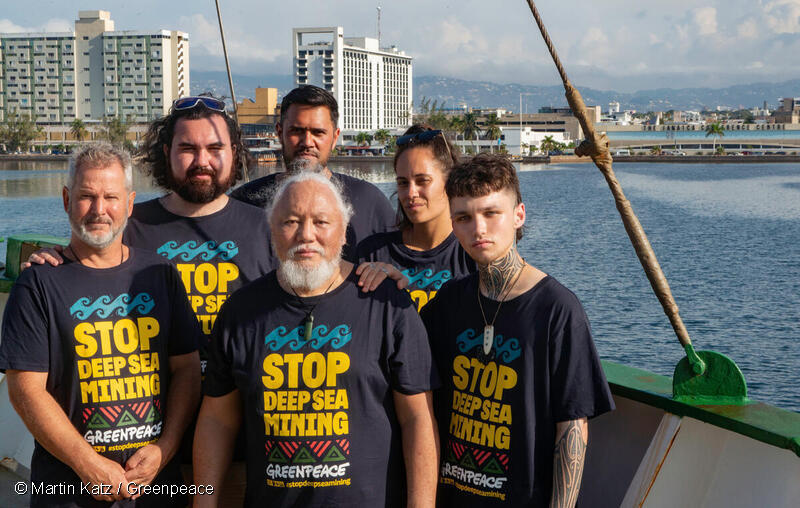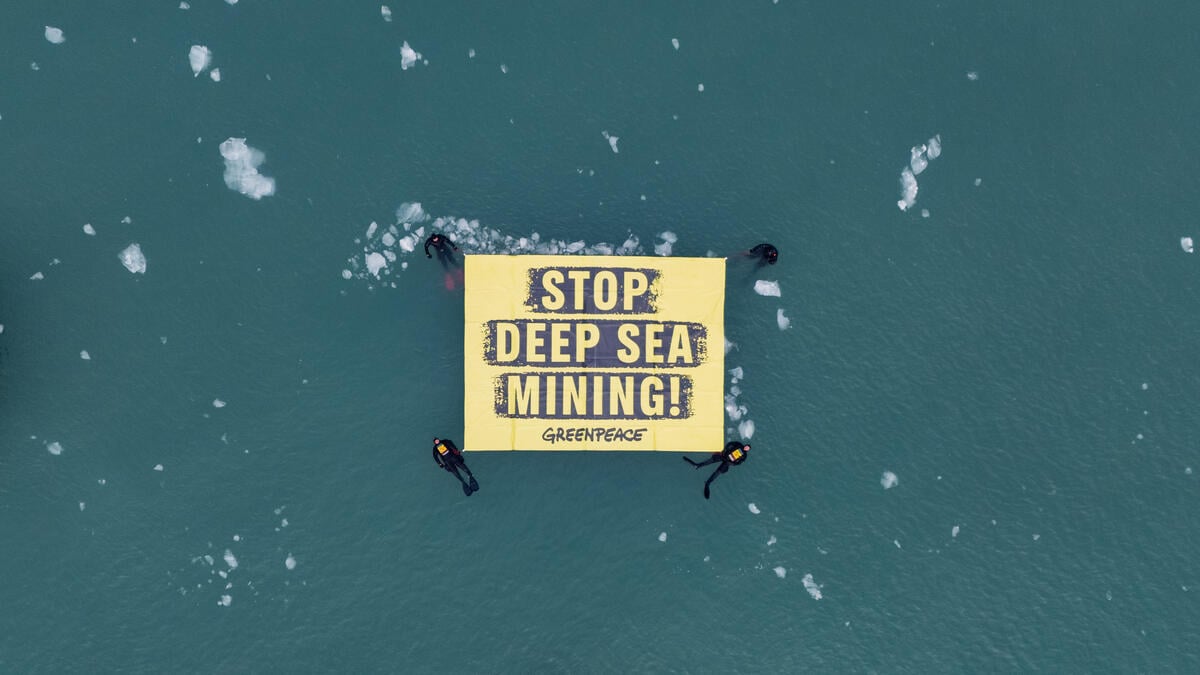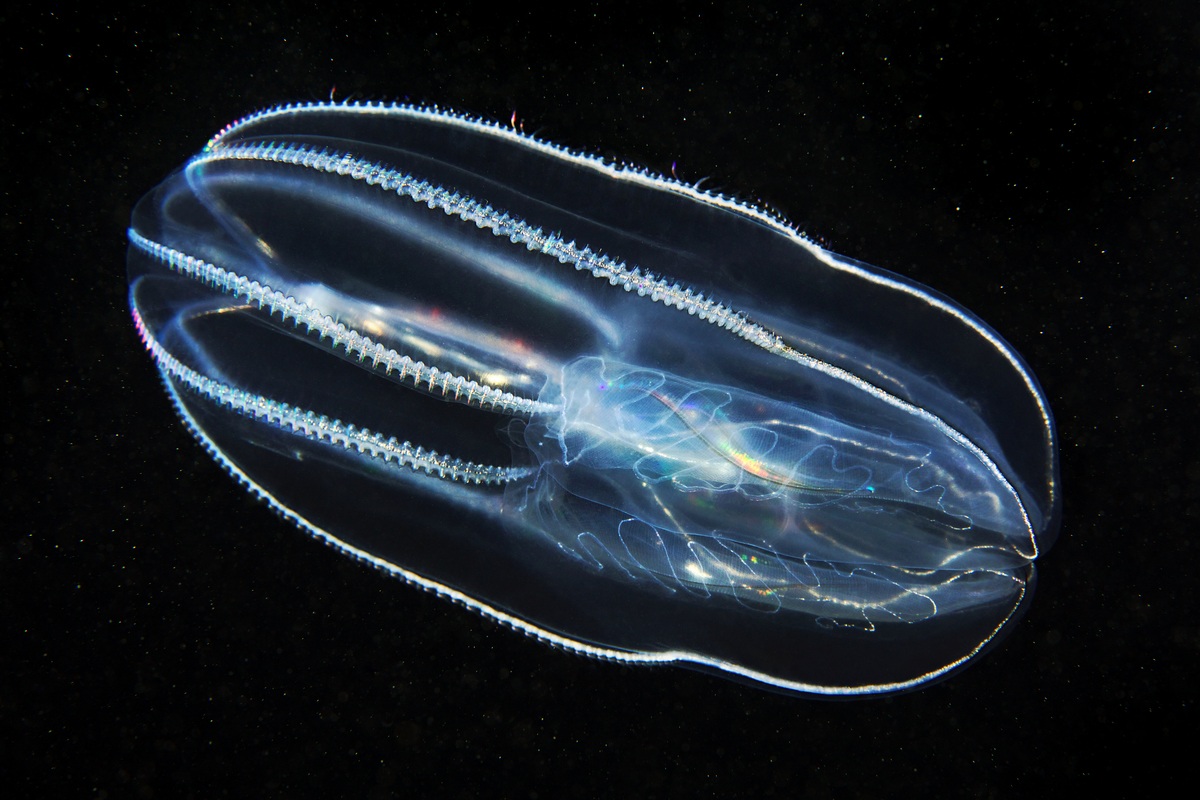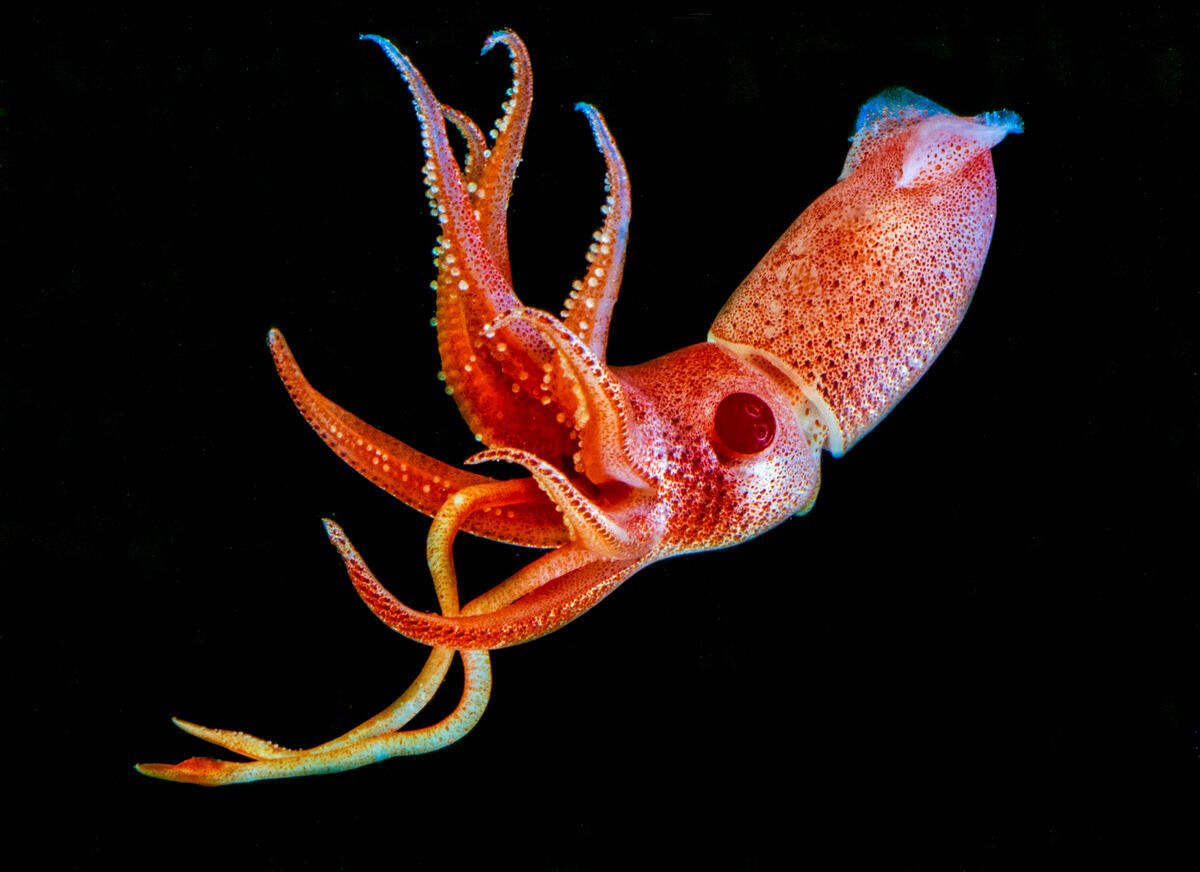Indigenous activists have made clear that they don’t give their consent to deep sea mining. In a petition presented today to the International Seabed Authority (ISA), over 1,000 signatories from 34 countries and 56 Indigenous groups called for a total ban on this destructive industry.

Indigenous activists have made clear that they don’t give their consent to deep sea mining. In a petition presented today to the International Seabed Authority (ISA), over 1,000 signatories from 34 countries and 56 Indigenous groups called for a total ban on this destructive industry.

Kingston, Jamaica, 20 March– Indigenous activists have made clear that they don’t give their consent to deep sea mining. In a petition presented today to the International Seabed Authority (ISA), over 1,000 signatories from 34 countries and 56 Indigenous groups called for a total ban on this destructive industry.
Addressing the delegates of the ISA this morning, Hawaiian Indigenous speaker and activist Solomon Kaho’ohalahala, offered the delegates a traditional chant and explained that in his culture’s genealogy all life comes from the deep sea: “the ocean is our country and we come from the deepest depths of the seas.” Following Solomon, Hinano Murphy from Blue Climate Initiative and Tetiaroa Society, asked governments to promote a ban on mining exploitation in the oceans with immediate effect.
The 28th Session of the ISA meeting resumed discussions in Kingston, where delegates will decide whether to adopt a precautionary pause and not approve any license applications for commercial mining of the seabed or permit operations to begin as early as this year. The talks in Kingston come shortly after the groundbreaking Global Oceans Treaty that provides a mechanism to protect 30 percent of the ocean by 2030.
“We are not in a position to add any new stress to our oceans by allowing deep sea mining to start. Overfishing, ocean pollution, and rising temperatures have already taken a huge toll on our high seas and we have done a poor job at mitigating these current stressors. So why are we even considering a new layer of destruction to an ecosystem that provides so much for us? We need to start giving back to our ocean, not deprive it of its wonders” said signatory Alanna Matamaru Smith from Te Ipukarea Society, who arrived on board Greenpeace ship Arctic Sunrise to participate as an observer in the ISA meeting.
The petition was presented to the ISA, where Indigenous activists made it clear that for millennia Pacific people have lived in a relationship with the natural world that is defined by respect, gratitude, and responsibility.
“We are calling for an immediate ban on deep sea mining because we need drastic changes in the way we manage our oceans. The threat of deep sea mining is huge. So our measures to protect the ocean and the life within it must also be huge. My people have lived in and around the ocean for generations. It’s who we are. We are the ocean and we must act now”, said signatory Solomon Kaho’ohalahala, Hawaiian Indigenous speaker and activist.
According to the petition signers, Western culture’s relationship with natural ecosystems of land, sea and sky have proven to be deeply harmful for the environment.
The activists are challenging governments and the International Seabed Authority to enact a ban on Deep Sea Mining effective immediately.
Pacific activists from Aotearoa (New Zealand), Cook Islands, Tahiti, and Hawaii arrived in Kingston early last week onboard the Greenpeace ship, Arctic Sunrise.
They have been campaigning on deep sea mining but were not previously given a platform at the ISA meeting to express their views despite the significant impact the decision could have on shaping their future. They were joined in the ISA meetings by fellow activists from Fiji and Papua New Guinea.
ENDS
Photo and video is available here:



